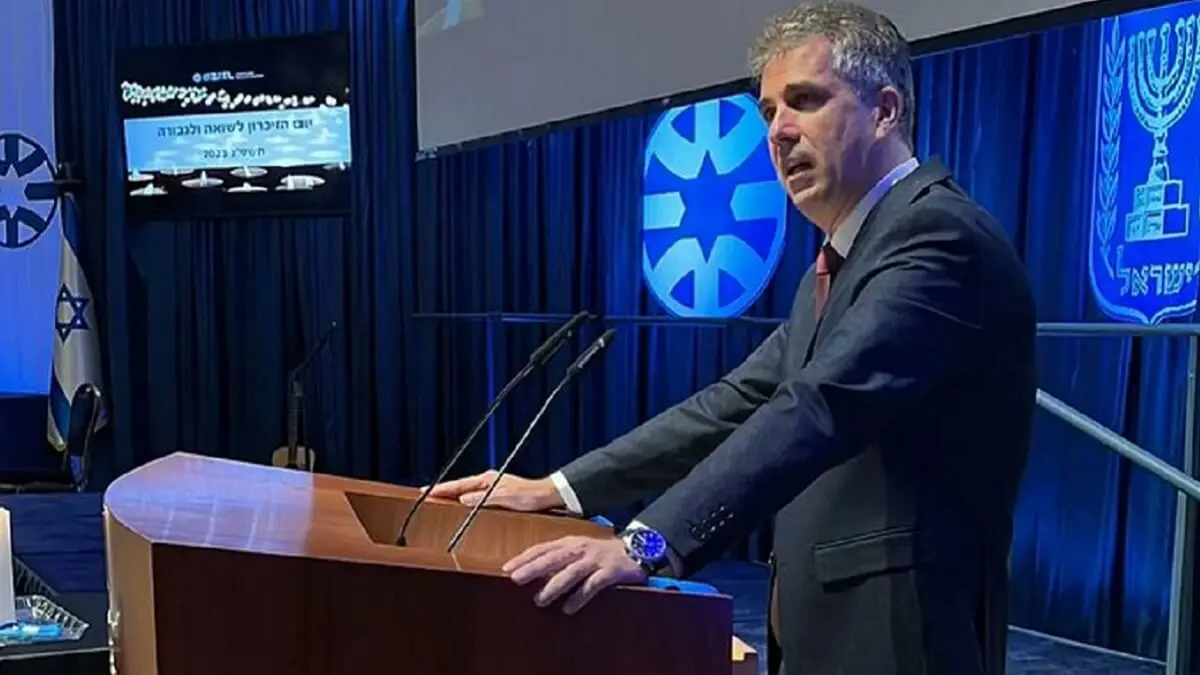New warnings from Israel about nuclear Iran

"If we delay in regaining unity in the face of Iran's nuclear threat, we are likely to be too late". This is the latest warning from Israel, this time from its Foreign Minister, Eli Cohen, who has just concluded a tour of Central Europe in which, in addition to visiting Slovakia, Croatia, Hungary and the Czech Republic, he was able to speak at the Slavkok/Austerlitz Forum, in which Bratislava, Prague and Vienna are cooperating.
Like his predecessors at the helm of Israeli diplomacy, Cohen warned his interlocutors, and indeed the entire European Union, that "we are very close to the point of no return" with respect to Tehran's nuclear weapons capability. A warning that is not new, and that both Prime Minister Benjamin Netanyahu and all the members of his extensive and more than motley coalition government repeat insistently from every platform they are given. This time, however, the warning comes from Israel's concern over reports of an imminent US-Iran deal, the fine print of which they allegedly do not yet know.
According to the Israeli channel Kan News, Washington has reportedly offered Tehran to unfreeze financial assets held by the Ayatollahs' regime in Iraq and South Korea in exchange for a halt to "some of its nuclear activities". This information coincides with another published by Iran International, which also admits such an exchange, although it does not speak of halting the nuclear programme but of "flexibility" in the negotiations on this programme, although it adds that in such a hypothetical pact Iran would release the five US citizens it is holding hostage.
The financial assets to be unfrozen would exceed $10 billion, including $7 billion held by South Korea, which Seoul owes Tehran for unpaid oil imports when then-President Donald Trump enacted sanctions in 2019. The sanctions also stipulate that Iraq will not pay Iran the more than $3 billion it owes it for its electricity and gas imports.
On his tour of Central Europe, Cohen has stressed to his interlocutors Israel's determination to strengthen the development of the Abraham Accords with its allies, hinting that the acceleration of such a strategy would be motivated by the resumption of diplomatic relations between Iran and Saudi Arabia, the two great leaders of Shia and Sunni Islam, respectively.
Cohen had already expressed practically the same points to his Spanish counterpart, José Manuel Albares, during his recent visit to Madrid and in view of Spain's assumption of the rotating presidency of the European Union as of 1 July, an event whose main thrust and planned initiatives have been considerably reduced due to the call for early general elections.
On his return to Jerusalem, Cohen also took with him the Hungarian government's agreement to make Hungary the first EU country to move its embassy from Tel Aviv to Jerusalem. Orban would thus once again break the unity of the EU-27, and Hungary would be the fifth country to execute a move that is symbolically much more than a simple relocation of a diplomatic representation. Only four countries have so far done so: the United States, Guatemala, Honduras and Kosovo, although several others have also pledged to do so, the latest being Paraguay, which would join African countries Malawi, Togo and Uganda. The Israeli Foreign Minister was quick to emphasise in reporting the news that "Jerusalem has been the capital of the Jewish people for 3,000 years".
Cohen also sought and obtained from his Magyar counterpart, Peter Szijjartó, that he would agree to denounce the Palestinian Authority before the International Court of Justice, "for paying terrorists to attack Israeli citizens".

